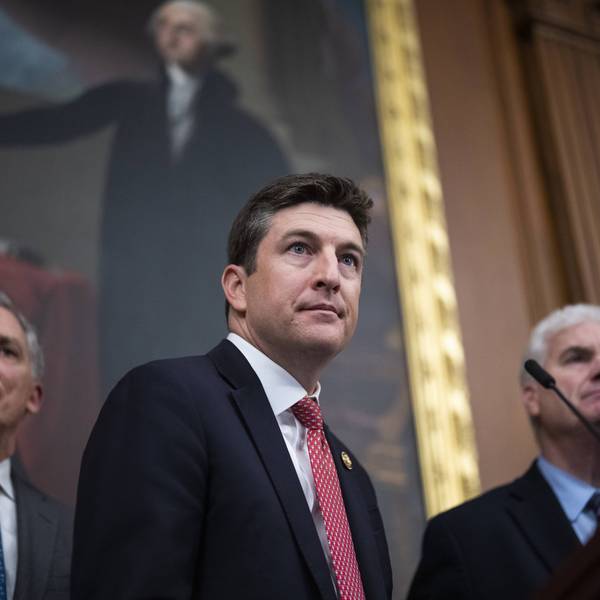Voting rights advocates in North Carolina are calling on Democratic Gov. Roy Cooper to veto Senate Bill 747 following the Republican-controlled state General Assembly's passage of the legislation on Wednesday night, with the GOP moving to restrict the use of absentee ballots and take other steps that would "make it harder for people to vote rather than easier," according to one Democratic Party official.
By imposing new limits on when election officials can process absentee ballots, among other measures, the bill "is simply and basically voter suppression," Anderson Clayton, chair of the state party, told The Washington Post Thursday.
Although Republican state lawmakers joined Democrats in 2009 in unanimously supporting legislation to ensure that absentee ballots would be accepted by officials up to three days after voting ends as long as the ballots were postmarked by Election Day, the GOP pushed through new rules requiring election boards to count absentee ballots only if they are received by 7:30 pm on Election Day.
Advocates say thousands of voters may now be disenfranchised due to mail delays and that certain groups will be disproportionately affected by the new limits.
"Ending the three-day grace period would cruelly harm older voters, people with disabilities, rural voters ,and others who rely on mail-in absentee voting as a lifeline for exercising their right to vote," said Bob Phillips, executive director of Common Cause North Carolina, in a statement. "North Carolinians who follow well-established rules and cast their ballot on or before Election Day shouldn't have their vote thrown away because of a delay in mail delivery that's no fault of their own."
Cooper, who is expected to veto the legislation, said Republicans in the state Senate and General Assembly pushed the bill by "using the 'big lie' of election fraud" and baseless conspiracy theories that the 2020 presidential election was "rigged" in President Joe Biden's favor.
The Republican Party "wants to block voters they think won't vote Republican, legitimize conspiracy theorists to intimidate election workers, and anoint themselves to decide contested elections," said Cooper.
In addition to restricting the use of absentee ballots, S.B. 747 will require voters who use North Carolina's same-day registration system to vote using a "retrievable" ballot that can be disqualified after just one attempt to deliver a voter registration card, instead of the two attempts that are currently required before a ballot is rejected.
Voters will be permitted to challenge the registrations of anyone in their county under the new law and partisan poll watchers will be allowed to listen to conversations between voters and poll workers and take notes—opening the door to voter intimidation, rights advocates said.
"Voter intimidation is now theoretically legal inside of a polling location," Clayton told the Post.
While North Carolina has long had an "accessible election system that works well for voters throughout the state," Phillips said, "politicians in the legislature are now placing harmful burdens on voters and election administrators."
"Senate Bill 747 is filled with a number of bad ideas that undermine North Carolinians' freedom to vote," he added. "We urge Gov. Cooper to veto this unnecessary and damaging bill."
Activist Joe Katz noted that the bill was passed after the Republican Party won legislative supermajorities using district maps that disenfranchised Democratic voters and after state Rep. Tricia Cotham (R-100) changed her party affiliation from Democrat to Republican following her staunchly pro-abortion rights election campaign last year.
Cotham's decision to join the Republicans gives the party a General Assembly supermajority that could override Cooper's veto.
"North Carolina just won't quit suppressing the vote," said Leslie Proll, who heads the voting rights program at the Leadership Conference on Civil and Human Rights.
Changes like the ones included in S.B. 747 "do not improve the integrity of our elections," Megan Bellamy, vice president for law and policy at Voting Rights Lab, told the Post. "If anything, they erode the trust of voters."




